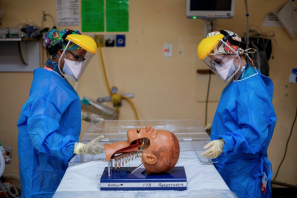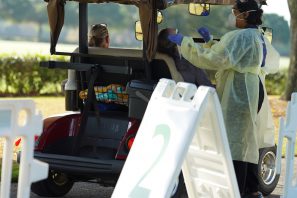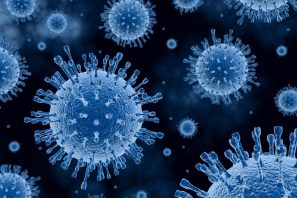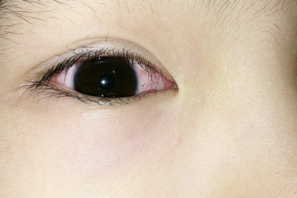Airborne virus plays a significant role in community transmission, many experts believe. A new study fills in the missing piece: Floating virus can infect cells.
As several shots hurtle toward the finish line, scientists worry about more than a few unknowns.
More people have reported having seriously considered suicide, according to a recent Centers for Disease Control and Prevention study.
UF researcher Derek A. T. Cummings contributes to study published in nature.com on SARS-CoV-2.
A mathematical modeling group including investigators from the UF Center for Statistics and Quantitative Infections Diseases worked with the World Health Organization and Florida Department of Health on modeling the pandemic globally.
Computer simulations run by David A. Ostrov show three compounds appear to have the potential to block coronavirus from cells.
UF Psychology professor Lisa Scott discusses the effects of traditional face masks on early childhood development.
COVID-19 is primarily a respiratory infection, but experts have suspected the virus can also infiltrate the eyes. Now, scientists have more direct evidence of it.
“It’s probably going to just continue to rise exponentially for a couple of weeks,” said Ira Longini, co-director of the Center for Statistics and Quantitative Infectious Diseases at the Emerging Pathogens Institute of the University of Florida.
John Lednicky's past decades of inquiry into coronaviruses have positioned him as one of UF’s go-to experts on the coronavirus.
Longini's suggestion that US deaths could peak in less than a month will have two possible impacts.












